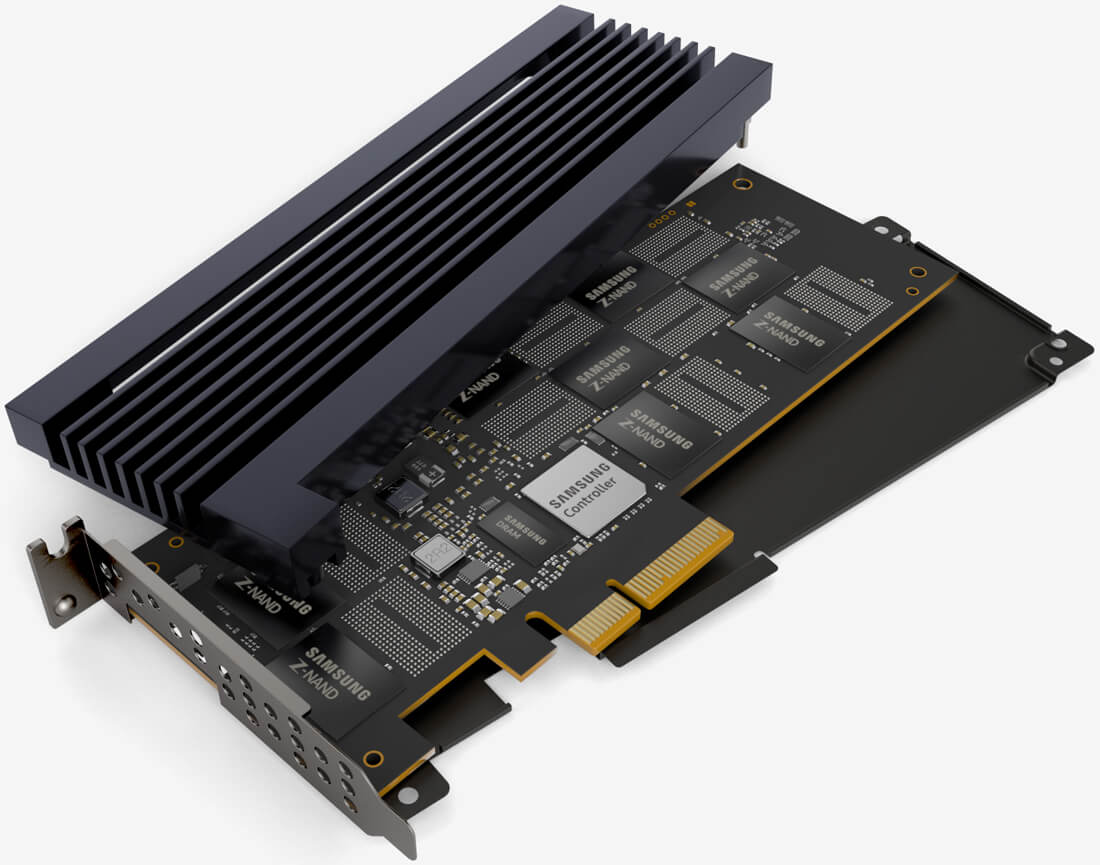
There is no shortage of demand for faster enterprise storage and Samsung now has a new product to offer. The SZ985 Z-SSD is an 800GB, four-lane PCIe SSD based on Z-NAND memory that offers nearly ten times the read performance compared to 3-bit V-NAND chips. The SZ985 is designed for supercomputing and artificial intelligence applications and can act as an extremely high-speed cache drive.
When performing random reads at 750,000 IOPS, Samsung's Z-SSD can perform 1.7 times faster than V-NAND drives. Write latency is also up to five times lower compared to the older NVMe PM963 SSD, measuring in at 16 microseconds. Z-NAND memory may be viewed as a direct competitor to Intel's 3D XPoint memory used in Optane. When compared to Optane, Samsung's Z-SSD significantly outperforms in read performance but falls far short on write speeds.

Random write speeds of up to 170,000 IOPS are achievable and write endurance should be no problem for this drive. Samsung has rated it for up to 30 full drive writes per day for five years. That equates to roughly 24TB per day or 42 petabytes over its expected lifespan. Samsung is so confident this drive will not die that it has given it a two million hour mean time between failure rating.
In addition to the 800GB model, a 240GB version will also be introduced. Both models will be on display at the International Solid-State Circuits Conference to be held February 11 through February 15 in San Francisco, California. Pricing has not yet been announced but chances are, these drives will be too expensive for consumers to consider.
https://www.techspot.com/news/73018-samsung-launches-800gb-z-ssd-ai-high-performance.html